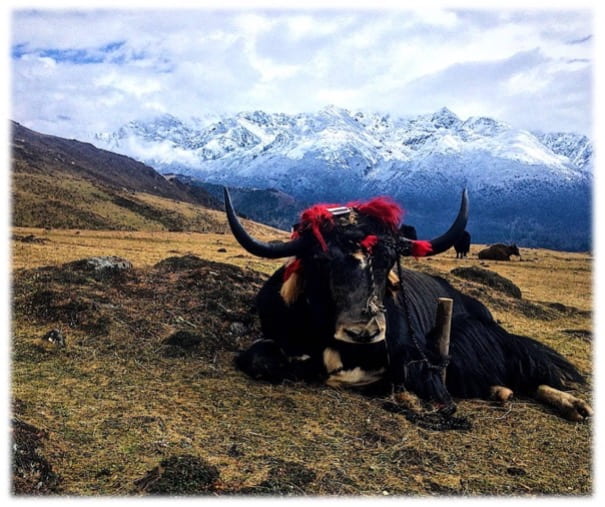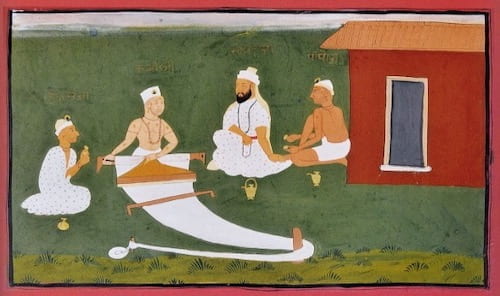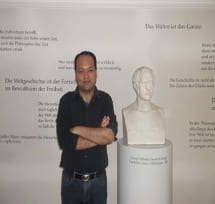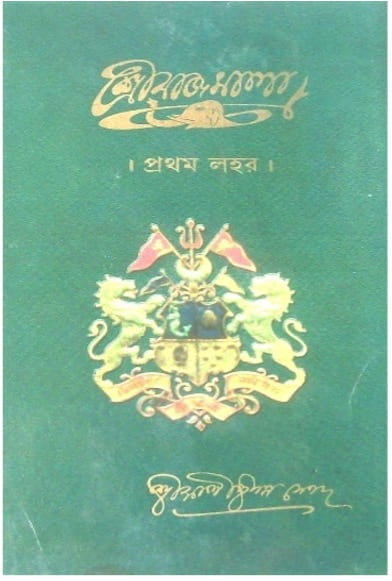By Milinda Banerjee
Two specters are haunting the world today, State and Capital. Together they degrade human and nonhuman beings into subjects, commodities; they transform Being into Unbeing. Intellectual historians have until now largely described how these two spectres came into existence—and got globalized in their present form through European colonialism and anti-colonial elite-nationalist resistance. They have traced out the conjuncted histories of state and capital by studying figures like Hobbes, Locke, Adam Smith, Kemal Atatürk, or Jawaharlal Nehru. But the task of decolonizing intellectual history should be to offer us pathways towards overcoming state and capital.
In the Western academy, intellectual historians had till recently preoccupied themselves with elite white men. Indian or Japanese students, in their respective countries, would study their own intellectual traditions, plus these European thinkers. But there was little reciprocity. In Europe and North America, intellectual history, as general form, largely remained white intellectual history. Non-white intellectual history, when at all studied, was mostly ghettoized to area studies departments. Across the last decade, however, intellectual history research in the Euro-American academy has transformed. Classic book series and journals that traditionally focused on Western intellectual history have gradually started publishing pioneering volumes and special issues on India, China, and Japan. There is a new English-language book series on Islamicate intellectual history and a journal on South Asian intellectual history. A nascent book series on South Asian intellectual history, published by Cambridge University Press, will probably be the first series explicitly dedicated to a non-Western world-region to be published by a major English-language university press. Path-breaking volumes are being published on African, Black Atlantic, and Native Hawaiian intellectual history. The field of global intellectual history, less than a decade old, now has a dedicated journal and a book series. New academic networks and conferences are evolving to decolonize and diversify the study of social and political thought.
These welcome transformations provoke us to ask what “decolonizing the curriculum” might imply for intellectual history. The question has crystallized in my mind through long conversations with friends and colleagues; through discussions while co-founding the series on global intellectual history and on South Asian intellectual history; and above all, through dialogues with students. I designed and taught courses on global intellectual history at Presidency University, Calcutta, and currently co-direct/teach a programme on Global Social and Political Thought at the University of St Andrews. By centering their environmentalist, feminist, queer, anti-racist, and decolonial politics in the classroom, my students have provided the immediate inspiration for this essay.
I feel that decolonizing intellectual history cannot mean simply supplementing, or even substituting, in the classroom the study of elite white men with elite brown men, the teaching of canonical European texts with canonical South or East Asian texts. It cannot be reduced to appointments of a few elite-non-white academics to positions in intellectual history—ticking the diversity box—while keeping old hierarchies of academic power intact. In any case, how would replacing Hobbes with Kautilya in the curriculum change anything? Kautilyan statecraft was as bent on exploiting human and nonhuman beings as the Hobbesian one. Studying Ottoman, Qing, or Tokugawa intellectual history is not intrinsically emancipatory. An appropriate analogy for the logic of canon/personnel-substitution is supplied by many postcolonial Asian, African, and Latin American states, which took over the governmental-military machinery of the European powers and enthusiastically robbed their poorer citizens, exterminated minorities, and decimated indigenous environments in the name of progress. Indeed, a deeper struggle is necessary against what the Indian “lower-caste”/Dalit thinker Manoranjan Byapari calls “the lording consciousness” (prabhutvakari chintadhara).
For Byapari, as for many other contemporary Indian thinkers, the postcolonial state has entrenched the domination of capital and the propertied classes: hence, for them, radical political thought must entail a conjoined critique of state and capital. Taking a cue from anti-imperialist Indian thinking, I would argue that to inaugurate new political possibilities, we must study the resistant consciousness of beings subalternized by state and capital. In the Age of the Capitalocene—when the planet has been ineradicably transformed by the global operation of capitalism—the very survival of life is at stake.
But before outlining an agenda for decolonizing and subalternizing intellectual history for the Capitalocene, let me first tarry with Hegel. The lord-bondsman dialectic in The Phenomenology of Spirit (1807) can be read as philosophically describing the founding moment of both state and property: the master coercing beings to work through “fear of death.” In Outlines of the Philosophy of Right (1820), Hegel elaborates that the sovereign ruler says “I will” (Ich will); and every property-owner stamps his will on what he claims as his possessions. A living being’s soul is displaced by that of the owner: “I give to it a soul other than the one it had before, I give to it my soul.” The possessive will thus robs the souls of beings, de-souls them, makes them Unbeing. “Another soul” (eine andere Seele) animates and haunts the being that is possessed. For Marx, this is “the soul of capital” (die Kapitalseele): hence, capital’s control of labouring beings is a vampirical possession.
The sovereign/possessive will uproots people from their lands, destroys forests, pollutes air and water, enslaves and slaughters animals, suppresses workers’ struggles. Violence transforms beings into subjects to be ruled, into resources for extracting value, into commodities to be produced and consumed. As the epoch of general commodification—the transformation of all or most social relations into relations of commodity production and exchange, for the pursuit of profit—the Age of Capital is the Age of Unbeing. Justin McBrien calls our era the Necrocene. King Capital presides over the sixth mass extinction of species.
Can decolonization of political thought offer us ways to overcome this planetary crisis? Or is anti-colonial thought trapped by structures of state and capital? In his new book, Dipesh Chakrabarty argues that anti-colonial Asian and African intellectuals and state-builders were invested in exploiting the environment to achieve human prosperity: they shared with Europeans a fundamental belief in technological growth. He casts Jawaharlal Nehru, first Prime Minister of independent India, as a paradigmatic thinker here. For Chakrabarty, the goal of redistributive justice—stemming out of socialist, anti/post-colonial, and feminist discourses about subaltern well-being— seems oppositional to environmentalist concerns. The argument runs: if poor Indians, Chinese, and Africans demand the same living standards as Europeans and Americans—fuel-sucking air-conditioners and cars—it spells ecological disaster.
However, Chakrabarty’s reading of anti-colonial thought is problematic. In India—and surely elsewhere too—anti-colonial politics was often anarchist, seeking to overthrow the European-colonial state-capital nexus, rather than preserve it. The postcolonial state was a betrayal, more than a realization, of many anti-colonial dreams. Nehruvian developmentalist ideology won only through tremendous violence—by suppressing popular revolutions in Telangana and Tripura; by submerging the anti-statist thought of figures like Mahatma Gandhi and Kazi Nazrul Islam; by suppressing the decolonial anti-extractivist environmentalism of Rabindranath Tagore; through settler-colonial operations, from Northeast and Central India to the Andamans and Kashmir. If strongman leadership and predatory capital conjoin today, from Modi’s India to Erdoğan’s Turkey, the fatal bond has a prehistory. Similarly, Indian consumption aspirations today—air-conditioners to survive in a fossil-fuel-heated world, cars to bypass an underfunded public transport system—cannot be understood without factoring in the prior violence of capital.
In postcolonial and (ostensibly) Communist states, either the state or a condominium of the state and the native bourgeoisie served as custodian of capital. These polities could not abolish the commodity-form, the wage-form, or indeed the state-form: human and nonhuman beings continued to be exploited with tragic rigor. Moishe Postone aptly criticized Soviet and other forms of state capitalism for merely achieving redistribution of wealth—the reduction of social inequality—without a more profound attack on the logic of capitalist production itself. If the capitalist/colonial expropriators are only expropriated, the logic of expropriation is preserved, rather than annihilated. Clearly, political-economic thought primarily focused on redistribution—as popularized today by Thomas Piketty—needs to be surpassed.
To complete decolonization, the modern sovereign state-form—colonial-origin across large stretches of Asia, Africa, and the Americas—needs to be dismantled. For inspiration, we must look to thinkers other than Lenin, Nehru, Sukarno, or Nasser. Contemporary capitalist value-extraction draws upon racial-colonial as well as older/precolonial hierarchies. Decolonization should involve resisting such degradation of beings, combating Manu as well as Milton Friedman. Intellectual historians have hitherto brilliantly interpreted how capitalist ideas, pertaining to property rights, consumer sovereignty, or Gross Domestic Product, were born; they must now contribute to changing this world.
Subaltern Studies theory should inspire us here. Ranajit Guha and Partha Chatterjee saw subaltern community, especially peasant community, as the social form oppositional to colonial capital. While researching some of these communities, I have become convinced that they offer the most successful models for resisting the state-capital nexus. Let us consider the Rajavamshis, one of the largest Scheduled Caste/Dalit peasant communities of India. Rajavamshis in colonial Bengal condemned capitalists for stealing (apaharan) their labor (shram) and land. Peasant labor created value and profit (labh), but the companies did not fairly recompense labor-value (shram mulya). In retaliation, Rajavamshis self-organized community education, healthcare, finance, and agrarian improvements. Politicians like Panchanan Barma successfully pressured the state to give lower-caste communities reservations and welfare support in legislative representation, education, and employment.
Interwar-era Rajavamshis theorized solidarity as transition from an atomistic prakriti (nature)—via prabhushasan (rule by master) and samajshasan (rule by society)—to atmashasan (self-rule) and atmashakti (self-power). The final goal of dialectical struggle was the abolition of all government (shasan) to attain fullness (purnatva) of being. In nearby Tripura, Indigenous/Adivasi highlander shifting cultivators, spearheaded by actors like Dasarath Deb, conceptualized a subaltern constitutionalism, enacting self-legislation (vidhi rachana) and counter-government (palta sarkar) against the Nehruvian state and high-caste Indian/Bengali elites. Through fierce struggle, they won significant territorial autonomy.
Counter-hegemonic political thought has often embraced the nonhuman. Tripura’s precolonial chronicle Rajmala advocated a general principle of “not harming beings” (prani ahimsan), while normativizing highlander rebellion against rulers who slaughtered humans and animals. Songs attributed to the fifteenth-century Indian Muslim weaver-saint Kabir, condemned Brahmanical animal sacrifice; instead, human beings were urged to “regard all as a living-being like oneself” (apna sa jiv sab ko janai) and practice “mercy” (daya). Peasant-pastoral communities in colonial India authored texts portraying cattle as divine beings deserving care.

More recently, the Dongria Kondhs of Orissa have successfully defended the mountain Niyamgiri, realm of their ancestor-god Niyamraja, from the neocolonial mining corporation Vedanta. Maori politics in New Zealand has enabled the ancestor-river Whanganui to acquire legal personhood and protection against settler-colonial encroachments. Bhutanese discourses recognize yaks as persons and regard land as owned by gods and spirits, limiting capitalist interventions. Recent scientific research reveals how crows can distinguish between fair and unfair behavior and innovate tool-use; how whales and dolphins have cultural lives; how fungi make choices and solve problems. Scholars should revisit nonhuman presences in intellectual history in light of such developments.
Intellectual historians should also draw insights from feminist and queer thought. Marxist-feminists like Tithi Bhattacharya counterpose life-making against capitalist thing-making and profit-creation; Françoise Vergès and Sylvia Tamale connect decolonial and feminist visions. I am currently working with students who are carving out anti-imperialist agendas of queer and trans intellectual history. Gray Black reads gay dating apps as technocolonial texts that commodify, racialize, and animalize queer bodies, while denigrating the animal. Mae Morgan interprets American transphobia as white supremacist thought, and antithetically highlights the relation between trans, feminist, antifascist, and anarchist political discourses.
As predatory capital bares its colonial fangs, cosmopolitical communitarian resistance crystallizes from Dakota to Orissa, from the Amazon rain forest to Aboriginal Australia. Dipesh Chakrabarty speaks of a “negative universal”—“a universal that arises from a shared sense of a catastrophe” (The Climate of History in a Planetary Age, 45)—as the required thought for the Anthropocene. In fact, we need something far more ambitious: political thought directly nourished by subaltern consciousness.
Let us be clear. The postmodern age of incredulity to metanarratives is over. Amitav Ghosh speaks of “a great derangement” that plagues us, that mandates collective imagining during this climate emergency. Shuvatri Dasgupta diagnoses anguish against injustice as the springboard for public intellection and empathy. Intellectual historians can help in weaving the “poetry of the future,” by linking the heterogeneous coalitions that are evolving across the world. Some will want to circumscribe state and capital, others to overthrow them. We can walk part of the path together. We shall study and connect insurrectionary political thought emerging from Indigenous societies, Black congregations, Dalit public spheres, anti-extractivist struggles, queer communities, feminist strikes. One link at a time—one mountain, one river, one forest, one injured species, one vulnerable minority at a time—we shall reverse the chains of subject- and commodity-making, of de-souling, that have precipitated the Great Unbeing. Niyamgiri, Whanganui, and Black Lives Matter embody political ontologies where beings are affirmed as beings. To borrow words from the Black theologian M. Shawn Copeland, they embody “a cry of presence.” This is a long revolution, rather than the messianic overcoming that the twentieth century reposed faith in. There is no time to despair.
Together with the anthropologist Jelle Wouters, I am writing a pamphlet calling for a revitalization of subalternist thinking. The urgent task of decolonizing intellectual history, of subaltern intellectual history, entails learning from and energizing radical political communities, to ally them—to fight against the empire of capital by enunciating non-exploitative interdependence and mutual aid between beings. One cannot stop at the “negative universal” of the Anthropocene. Instead, we must overcome the Capitalocene by being-in-common, by thinking-in-assembly. In recognizing the interdependence between beings, we shall reconstitute Being.
Dr Milinda Banerjee is Lecturer in Modern History at the University of St Andrews. He specializes in History of Modern Political Thought and Political Theory, and is Programme Director for the MLitt in Global Social and Political Thought. He is the author of The Mortal God: Imagining the Sovereign in Colonial India (Cambridge University Press, 2018). He has co-edited the volume, Transnational Histories of the ‘Royal Nation’ (Palgrave, 2017); the forum ‘Law, Empire, and Global Intellectual History’, in the journal Modern Intellectual History (Cambridge University Press, 2020); the special issue ‘The Modern Invention of ‘Dynasty’: A Global Intellectual History, 1500-2000’, in the journal Global Intellectual History (Routledge, 2020); and the special issue ‘Forced Migration and Refugee Resettlement in the Long 1940s: A Connected and Global History’, forthcoming in the journal Itinerario: Journal of Imperial and Global Interactions (Cambridge University Press, 2022). Banerjee has published two other monographs and several articles on the intersections of Indian and global intellectual history and political theory. He is an Associate Editor of the journal Political Theology (Routledge), and the founder-editor of two series with De Gruyter, ‘Critical Readings in Global Intellectual History’, and ‘Transregional Practices of Power’.
Featured Image: Kabir (second from left) with Namdev, Raidas, and Pipaji. Jaipur, early 19th century. Courtesy of Wikimedia Commons.






1 Pingback